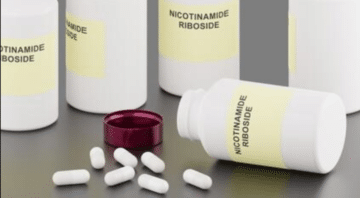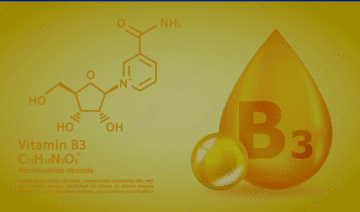The search for anti-aging products is probably one of the most elusive yet expensive pursuits. Statistics indicate that the global anti-aging market size was estimated at USD 62.6 billion in 2021 and is expected to register a compound annual growth rate (CAGR) of about 7% between 2022 and 2027.
However, the quest for anti-aging supplements isn’t a worthless pursuit after all. That’s if recent scientific breakthroughs are anything to go by.
Researchers have since proven that certain compounds may prolong longevity. One such substance is niagen, and this article shall shed light on its perceived anti-aging benefits.
Introducing Niagen
Niagen is an alternative form of niacin (vitamin B3), widely touted for its potential anti-aging properties. The compound is more technically known as nicotinamide riboside.
Like other forms of niacin, nicotinamide riboside exerts its therapeutic effects by converting it into the coenzyme nicotinamide adenine dinucleotide (NAD+).
Studies have shown that NAD+ performs several essential functions in the body. It’s notably involved in repairing damaged DNA, energy metabolism, regulating circadian rhythm, and boosting immunity. As you shall find, most niagen benefits are essentially similar to those provided by NAD+.
Supplementing With Niagen
Niagen exists as a precursor of NAD+. However, the body’s ability to produce nicotinamide adenine dinucleotide naturally diminishes over time.
By around the age of 50, a person produces less than half of the NAD+ levels they secreted in their teenage years. The only way to ramp up the levels of this essential compound is to use niagen supplements.
Animal studies have found that niagen can raise blood NAD+ levels by a whopping 2.7 times. Even better is that the human body absorbs niagen more effectively than other NAD+ precursors.

How Does Niagen Slow Down The Natural Aging Process?
One of the glaring drawbacks to most anti-aging supplements is that they only address the superficial signs of premature aging, such as wrinkling. However, nicotinamide riboside works by reversing aging from inside the body.
Niagen is a precursor of NAD+, a staple molecule in all body cells that aids numerous aspects of healthy growth and development.
NAD+ is involved in energy metabolism. The compound improves mitochondrial functions, providing sufficient energy to power all cellular activities. Keeping the cells energized can help reduce cell death, a key trigger of premature aging.
But what makes nicotinamide riboside such a powerful anti-aging supplement is its ability to address a broad spectrum of age-related chronic illnesses. One study conducted in mouse models with Alzheimer’s disease revealed that niagen’s precursor - NAD+ - may prevent age-related cognitive decline by inducing the upregulation of mitochondrial gene expression.
NAD+ also prolongs longevity by stimulating the release of sirtuins. Sirtuins are an enzyme group that plays an essential role in improving lifespan. It’s repairing damaged DNA, reducing inflammatory responses, and boosting stress resistance. The enzyme group may also extend longevity through its calorie-restriction properties.
Poly (ADP-Ribose) polymerases (PARPs) are another key enzyme group stimulated by NAD+, which may offer powerful anti-aging properties. Studies have established a close correlation between higher PARP activity and reduced DNA damage. Since low DNA damage is synonymous with a longer lifespan, researchers have since deduced that any compound that stimulates PARPs - such as niagen - may have direct anti-aging properties.

Niagen’s Other Health Benefits
Niagen’s therapeutic benefits aren’t only due to its anti-aging effects. Below are other medical issues you can treat using this powerful supplement;
1. Cognitive Decline
Niagen’s precursor - NAD+ - can improve various aspects of mental performance by reducing cognitive decline. The molecule regulates the secretion of PGC-1-alpha, a protein that guards against oxidative damage to brain cells.
NAD+ also prevents cognitive decline by improving mitochondrial function in stem cells. This helps supply your brain cells with the energy required for optimal performance.
2. Obesity and Diabetes
One way niagen promotes longevity is by boosting energy metabolism. By accelerating the conversion of food into useful energy, the compound also lowers the risks of unhealthy weight gain.
Consuming niagen supplements regularly may help keep weight-related lifestyle diseases like obesity and diabetes at bay.
3. Cardiovascular Diseases
Heart and cardiovascular diseases are among the most common old-age illnesses that you can manage or even prevent using niagen. Animal studies have shown that supplementing with NAD+ may improve arterial functions.
NAD+ reduces the stiffening of arterial walls, thereby guarding against arteriosclerosis. It also lowers systolic blood pressure, making it particularly beneficial for hypertensives.
4. Muscle Wastage
Seasoned athletes and fitness buffs struggling with muscle wastage may also benefit immensely from niagen supplements.
Mice studies have established a relationship between high blood NAD+ levels and improved muscle endurance. So, niagen supplements are a welcome inclusion into your fitness routine.
Niagen Dosage and Delivery Method
Niagen is typically available in tablets or capsules. You can access the supplement in any licensed health-food store near you.
Many human studies involved administering 1,000 - 2,000 mg of nicotinamide riboside daily. However, most niagen brands cite 250 - 300 mg as the ideal daily dosage.
While the compound has a high safety profile, it’s best to start with lower doses if you’re new to it.
Wrap Up
Niagen may not be the elixir of life that humanity has been pursuing for centuries. However, numerous studies have shown that supplementing with this compound may offer several anti-aging benefits.
Remember to consult your healthcare provider before integrating niagen into your life. Their insights will be invaluable in helping you determine the right dosages.



